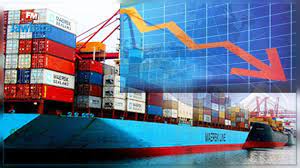
Introduction
In the quiet corridors of our increasingly automated world, a profound transformation is unfolding. Artificial intelligence (AI), once the realm of science fiction, has woven itself into the very fabric of our daily lives, reshaping industries and redefining the essence of work. As we stand at this crossroads, we must grapple with an unsettling question: what are the true implications of AI on employment? Who truly benefits from this technological tide, and who bears the brunt of its disruptive force? This investigative piece seeks to delve deep into the shadows cast by AI, illuminating the complex interplay between innovation, displacement, and the future of work
The Surge of AI Adoption
The acceleration of AI adoption has been nothing short of remarkable. In the wake of the COVID-19 pandemic, companies worldwide have rushed to embrace digital solutions, thrusting AI into the spotlight. According to McKinsey, 75% of organizations plan to increase their AI investments over the next few years. This shift, however, is not merely a trend; it is a seismic change with far-reaching consequences
To unpack this phenomenon, we spoke with Dr. Anne Laurent, an economist specializing in labor dynamics. “AI is both a catalyst for growth and a harbinger of disparity,” she asserts. “While it can streamline operations and enhance productivity, it simultaneously threatens to displace large swathes of the workforce
Industries in the Crosshairs
AI’s impact is not felt uniformly across sectors; some industries are experiencing more turbulence than others. The healthcare sector, for instance, stands on the brink of a revolution. AI technologies are being harnessed to refine diagnostics and personalize treatment plans. Companies like IBM and Google Health are developing sophisticated algorithms that analyze vast datasets, enabling healthcare providers to make faster and more accurate decisions. Yet, this advancement comes at a cost. As machines take over tasks traditionally performed by humans, job security for lower-skilled positions diminishes, leaving many workers in a precarious state
In the financial realm, AI is redefining how risks are managed and data is analyzed. Banks and financial institutions are deploying algorithms that can detect fraudulent activities in real-time, effectively reducing the need for human analysts. A sobering report by PwC warns that up to 30% of jobs in this sector could vanish by 2030, raising urgent concerns about the future livelihoods of millions
The Skills Paradigm Shift
The ramifications of AI extend beyond job loss to a fundamental transformation in the skill sets that employers demand. The World Economic Forum projects that by 2025, 85 million jobs may be displaced by AI, while 97 million new roles—often requiring advanced technical skills—could emerge. This scenario presents an urgent question: who is prepared to meet the demands of this new economy?
Large corporations such as Amazon and Google are leading the charge, investing heavily in employee training programs to equip their workforce with necessary skills in AI and data analytics. However, these opportunities are not universally accessible. Workers in small businesses or those in lower-skilled positions frequently find themselves left behind. “The gap in access to training is alarming,” remarks Marie Dubois, head of a nonprofit reskilling initiative. “Many manufacturing workers, for example, struggle to find resources that can help them transition to new roles
The Widening Inequality Gap
The repercussions of AI-induced change do not merely threaten jobs; they exacerbate existing inequalities. As low-skilled roles disappear, the labor market increasingly polarizes, favoring those equipped with advanced skills while marginalizing others. This trend threatens to entrench social and economic disparities further, raising ethical questions about the role of technology in society
For many displaced workers, the road ahead is fraught with uncertainty. Current social protection systems are ill-equipped to address the unique challenges posed by AI-driven transformation. Several countries are exploring policies such as universal basic income to provide a safety net for those left in the wake of automation. However, these discussions often remain theoretical, lacking concrete implementation plans
Towards Solutions: Fostering Inclusive Dialogue
To effectively navigate the challenges posed by AI, an inclusive dialogue among businesses, governments, and workers is essential. The opportunities offered by AI must be balanced with comprehensive policies that support a just transition
Emerging initiatives are striving to bridge the skills gap, with state-funded training programs aimed at providing resources for workers to reskill. However, these efforts require scaling to reach the most vulnerable populations. Collaborative partnerships between corporations, educational institutions, and community organizations can catalyze a more equitable transition for all
Conclusion
The impact of artificial intelligence on employment is a deeply nuanced and multifaceted issue. While some sectors flourish in the face of innovation, others grapple with existential threats. Our ability to navigate this transformation will determine the future of work and the fabric of our society
Ultimately, the narrative surrounding AI must shift from one of fear to one of opportunity. Policymakers, business leaders, and educators must unite to create an ecosystem that not only harnesses the potential of AI but also safeguards the dignity and security of work for all. The true measure of AI’s success will not merely lie in its efficiency but in its ability to foster an equitable future, ensuring that no one is left behind in this silent revolution
Malek Chouchi




